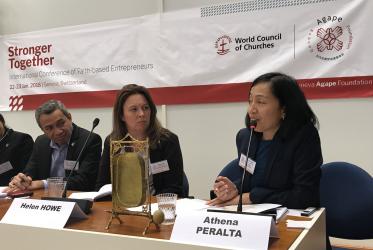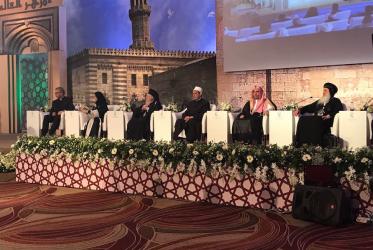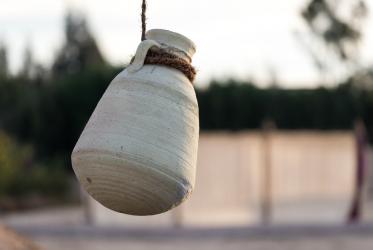Displaying 141 - 160 of 257
Voices from Colombia: “What if we have no land to till?”
15 February 2018
Network of Christian entrepreneurs commits to faith in business
01 February 2018
WCC 70th anniversary started in Beijing
07 January 2018
WCC delegation visits China
04 January 2018
In Nigeria, WCC workshops focus on human rights
04 December 2017
African women embark on pilgrimage in Burundi
29 November 2017
In Zambia, foreign investors complicate “economy of life”
06 September 2017
What is done for children, impacts all community
22 August 2017
"We have our work cut out for us"
10 August 2017
Gender-based violence concerns ‘all of humanity’
11 July 2017
Seven weeks of Lent highlight water crisis in Africa
01 March 2017
Justice and peace in Africa: Where to start? Where to go?
27 February 2017










